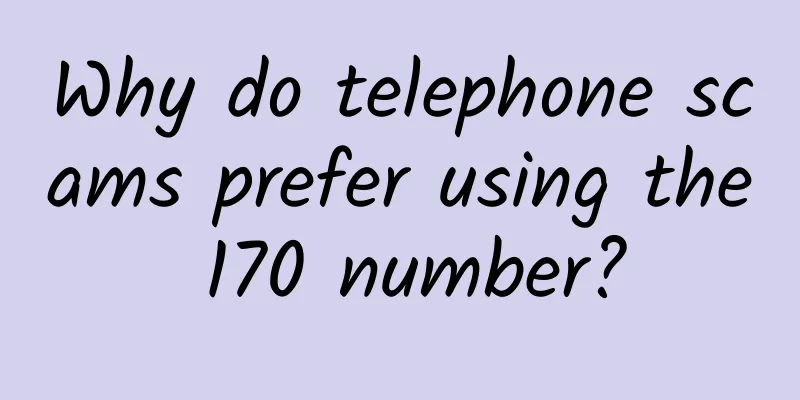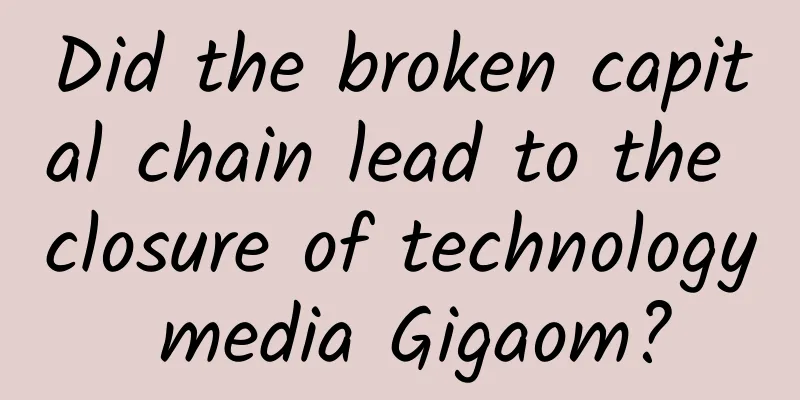Why do telephone scams prefer using the 170 number?

|
After the three major operators started to implement the real-name system for mobile phones, the problems of spam text messages, phone harassment, and communication fraud caused by virtual operator mobile phone cards due to non-real-name system have become increasingly prominent. Tencent Mobile Manager security experts found through big data monitoring that nearly 44% of fraudulent text messages came from the 170/171 number segments of virtual operators. This phenomenon has attracted great attention from government departments. In early April, the Ministry of Industry and Information Technology urgently interviewed three virtual operators that had not fully implemented the real-name system and ordered them to make immediate rectifications. At the end of April, the Ministry of Industry and Information Technology issued a formal notice requiring virtual operators to make rectifications within one month and complete identity information re-registration for phone numbers that were not registered with real names or falsely registered in the early stage. Offline transactions of non-real-name cards are still active. At present, most virtual operators have begun self-examination and self-correction. Since late March, through the self-examination of agents and undercover visits to the communications market, Snail Mobile has cancelled cooperation with one agent and severely punished three agents who violated the regulations. Share Communications also found that some partners wholesaled the number cards to downstream black card channels and severely punished them. "IT Times" reporters recently visited the communications product sales markets in some provinces and cities. In a communications market, a larger 170 number card wholesaler said that all phone cards now need real-name registration. However, the reporter found that there was an endless stream of small wholesalers coming to pick up the goods, and the store did not register the flow of these number cards, which also caused great difficulties in tracing the problem numbers later. "At present, when allocating virtual operator card numbers, they are allocated based on the principle of the ten thousand number segment, that is, only the first seven digits can tell which virtual operator it is, instead of the three major operators, which can be identified by the first three digits. Virtual operator numbers cannot be effectively identified, and management is difficult, and it is even easy to make jokes and helplessness of "putting the wrong number on someone else's head." Snail Mobile responded. During the reporter's undercover visit, some small number card wholesalers said that they could sell 170 number segment phone cards without real-name registration. One of the shop owners took out the phone cards of Xin Shikong, HNA and Share Communication, and said that these phone cards have been registered and activated with their ID cards, and no real-name registration is required. They can be used by plugging them into the mobile phone. Online channels have become the hardest hit area . In addition to offline channels, online channels are also the hardest hit area for virtual operators to sell non-real-name cards. Snail Mobile has set up a special online anti-counterfeiting inspection team, and has currently removed products from the shelves or directly closed a total of 103 shops. However, there are still many merchants in the online channel selling non-real-name cards. The reporter contacted several large-scale phone card wholesalers through 58.com and Alibaba. The minimum purchase quantity is 1,000 cards, and the price is as low as 7 to 19 yuan. A phone card wholesaler on 58.com told the IT Times reporter that if you get a card from him, there is no minimum quantity limit, and you don’t need to go through real-name authentication. You just need to take a picture of the four lines of numbers on the back of the phone card and send it to him to activate it. "Since April 18, the real-name system has been strictly checked. Snail and Dijia have also suspended hundreds of thousands of cards, and many Taobao stores have removed their products, so we now use WeChat. Before, as long as you get tens of thousands of cards, you can directly negotiate with the head office of Snail, Dijia, and Xinshikong for agency." The wholesaler said. In fact, this gray channel is the root of the non-real-name system era. Wang Hao (pseudonym) has been an agent for the three major operators for many years. He explained that the phone card wholesalers roaming in the black card market are generally small trading companies. They get pre-configured packages, pre-paid phone bills and numbers from upper-level agents for retail, but the "real-name system" of these cards is mostly completed through the second-generation ID card recognition channel that is not provided by the Ministry of Public Security, such as manually filling in the ID number, uploading the user's ID card photocopy through QQ, WeChat, etc., and some will directly use fake ID card information on the Internet. When tracing the problem number, it is often found that the name of the household owner is "Zhu Bajie" or "Ms. Wang". In the "Notice" issued by the Ministry of Industry and Information Technology, it is clearly required that those who go through the network access procedures through physical marketing channels must verify and automatically enter the user's identity information through the second-generation ID card recognition device, and manual entry of ID card information is prohibited. Online real-name authentication is full of loopholes . The reporter randomly selected the official websites of 10 virtual operators to purchase cards. Among them, the official websites of Xin Shikong, Leyu Communication, HNA Communication, and Uyou have suspended the sale of card No. 170, either showing that the number is sold out or showing that the system is being upgraded. When selecting a number to join the network on a website that has enabled real-name registration, you are required to fill in your real name and ID number, and upload the front, back, and half-length photo of your second-generation ID card. Most of these virtual operators use Guozhengtong's ID card verification system, so when you enter the wrong ID number, it will prompt "The ID card number format is incorrect" and you cannot proceed to the next step. However, after repeated verification by reporters, it was found that filling in A's ID card information and uploading B's ID card photo, or filling in the correct name and ID card information and uploading a photo with a tampered ID number, these two types of fake real-name registrations can be successfully submitted to the order submission and payment links on websites such as Snail Mobile, Suning Internet, Zhongmai Communications, and Minsheng Communications, and are not blocked at the real-name authentication link. Share Communications said that currently most online real-name authentication is mainly based on manual review. Due to unclear photos and difficulty in authentication, it is far from enough to pass the online authentication alone. It is also necessary to present the original ID card and provide a copy as a receipt when signing. In the entire online real-name authentication process, it mainly relies on manual review and express ID card copies, which will lead to many uncontrollable situations. Zou Xueyong, Secretary General of the China Virtual Operator Industry Alliance, believes that technical means of authentication should be strengthened, such as video face recognition. High cost investment makes it difficult for virtual operators to implement the real-name system without physical store coverage. The high cost of offline real-name authentication has become the main factor restricting virtual operators from implementing the real-name system. At present, many virtual operators have stated that they are bidding for offline real-name authentication equipment. "From the perspective of several suppliers we have talked to now, the cheapest real-name authentication equipment costs 1,000 yuan per unit, and it costs about one yuan to authenticate a user. For us virtual operators who are still in the early stages of development and have a small user base, this is a heavy cost expenditure." A virtual operator revealed. "IT Times" reporters learned from several real-name authentication equipment vendors that it is difficult for them to make money from the equipment. In the absence of mass production, the hardware cost is even more than 1,000 yuan per unit. Yixiao Technology is a service provider in Shanghai that provides remote real-name service access for operators. It helps virtual operators to conduct real-name authentication through overall solutions, while expanding outlets for number card sales and after-sales service. In towns and villages, there are many mom-and-pop stores with an area of 5 to 10 square meters. The store owner can spend a deposit of about 1,500 yuan to rent an EasySales Mini terminal to carry out services such as activating new cards, replacing packages, and contract phones. At the same time, it provides real-name authentication, which is equivalent to helping virtual operators open a business hall in villages and towns. Xue Jun, CEO of EasySales Technology, revealed that more than a dozen virtual operators are currently negotiating cooperation with them. Virtual operators are looking for low-cost, wide-coverage solutions that can afford to invest tens to hundreds of yuan in an offline outlet. "In addition to costs, virtual operators will also encounter difficulties in connecting to local systems and two-way settlement of services when expanding offline channels, which cannot be solved by simply purchasing an authentication module." Xue Jun said. As a winner of Toutiao's Qingyun Plan and Baijiahao's Bai+ Plan, the 2019 Baidu Digital Author of the Year, the Baijiahao's Most Popular Author in the Technology Field, the 2019 Sogou Technology and Culture Author, and the 2021 Baijiahao Quarterly Influential Creator, he has won many awards, including the 2013 Sohu Best Industry Media Person, the 2015 China New Media Entrepreneurship Competition Beijing Third Place, the 2015 Guangmang Experience Award, the 2015 China New Media Entrepreneurship Competition Finals Third Place, and the 2018 Baidu Dynamic Annual Powerful Celebrity. |
>>: The evolution of AI technology is underestimated by the public
Recommend
The doctor said: Don’t do these 4 things, otherwise you will have another cerebral infarction!
Master Li had another cerebral infarction. This w...
iOS 15 Private Relay feature early test: still affects network speed
At this year's WWDC, Apple introduced a featu...
The logic behind Xu Jiayin's entry into new energy vehicles: In addition to acquiring land, there is also a desire to survive
Jia Yueting or Xu Jiayin’s FF91 car is about to g...
How to develop an online event planning plan?
Even those who are just starting out in operation...
How powerful is the Tabor robot vacuum cleaner’s path-finding artificial intelligence laser navigation + PC-level chip?
Some time ago, "AlphaGo" defeated Lee S...
Advanced Information Stream Advertising Account Optimization
An advanced article with practical information, d...
Does the rumored ninth planet in the solar system really exist?
How many planets are there in the solar system? E...
With customer acquisition as the goal, how to achieve user growth from 0 to 1?
If the goal is to acquire customers, then you nee...
A mother in Shanghai was so angry that she was admitted to the hospital. Is tutoring really that powerful?
What??? Can losing control of your emotions lead ...
2024 New Energy Vehicle Q3 Quarterly Report: Traditional Automakers’ Car Computers Perform Well
2024 has quietly come to an end, and the new ener...
Shenchen Panda Compass: Top Ten Marketing Methodologies (11 sections)
Shenchen Panda Compass: Top Ten Marketing Methodo...
3 issues in ToB product operation!
When I was doing ToB operations before, I treated...
APP promotion: 95% of people use these 5 conversion strategies incorrectly
The conversion rate optimization strategy is inef...
iQIYI and Changhong jointly launch a new TV species, LeTV Cast builds new Internet infrastructure
As home appliances continue to become smarter, sm...
Is Google's opening up of 230,000 patents forcing domestic mobile phone companies such as Huawei and Xiaomi to surrender?
Written in front: Is free sharing necessarily a g...









